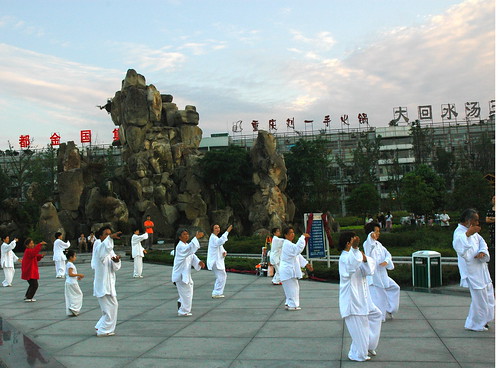
In a recent conversation with my friend over at Jesusfollowers Journal, he had responded to a comment of mine regarding spirituality and religion with the following thought (I'm paraphrasing):
Actually, there is a very sharp distinction between spirituality and religion, spirituality being the much more important of the two. In order to describe spirituality, let me borrow a term utilized by C. S. Lewis. Spirituality is mere compassion, mere love, mere patience, mere forgiveness, mere harmony, mere concern for others' well-being and happiness.
"Mere" is a key term here, and the primary reason why spirituality trumps religion. The true purpose in life is to develop untainted compassion for all beings, love others as yourself, be patient, caring, helpful, and calm. Work toward others' happiness, and thereby your own happiness as well. By "mere" I mean "essence" or "nature." When one practices spirituality, one practices reaching toward the heart of true compassion, true love, true forgiveness. To be able to display mere compassion for another is not just to be compassionate toward another, but to BE compassion itself. Touching that true nature, that suchness, that essence, that mere-ness of compassion goes beyond just surrounding oneself in compassion. Instead, one becomes the heart of compassion altogether. That is the practice of spirituality.
Religion is different. Religion is concerned with faith in one tradition or another, with an acceptance of some definition of reality. The practice of religion is not necessary to the practice of spirituality. That phrase is so important, let me say it again.
Of course practicing the right religion for you can enhance the development of your spirituality. For people who truly practice their faith with their entire being, maintaining openness and love for others, religion enhances their compassion, their love, their patience. For many people religion seems to have the opposite effect, fostering intolerance, conflict, and aggression. The point here is that we have a matrix of possibilities:
| Spiritual and Religious | Spiritual and Non-Religious |
| Non-Spiritual and Religious | Non-Spiritual and Non-Religious |
I think the upper left quadrant--spiritual and religious--is the ideal, not because it is inherently better than the others (which it's not), but because people in that quadrant tend to have the greatest number of tools available to them to live well for themselves and for others. Not only can they draw on their spirituality, they can draw on the lessons of their religion to help them improve their spirituality.
The spiritual and non-religious person is in the second best position--second only due to the fact that they do not have the myths and practices of a religion to use toward developing their spiritual qualities. However, this by no means reflects on the people falling into this category. Many spiritual and non-religious people are much more compassionate, loving, caring individuals than those in the upper left quadrant.
The lower left quadrant comes next. This is stereotypically the quadrant of fundamentalists. To have religious belief, but to not have that reflect into your life as a stronger level of compassion, love, tolerance, acceptance, and patience shows that you are off-track. Any religious practice that does not result in increasing compassion, tolerance, forgiveness, love, patience, and caring is either (a) worthless and harmful, or (b) being practiced incorrectly.
The lower right quadrant is last, and stereotypically houses materialistic, egotistic individuals, people for whom caring and love are a foreign concept.
Bringing us full circle, we all must work to develop our spiritual qualities. If we find a religion that suits our nature, we can use its teachings to further our development. But if not, that's ok. We don't have to drape a mental model over reality in order to develop our spiritual qualities. We can simply practice mere compassion, mere love, mere patience, mere acceptance, and thereby touch, become, converse with, see, or merge with God--whichever of those understandings resonates with your being.







